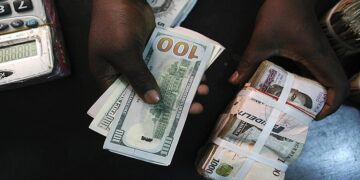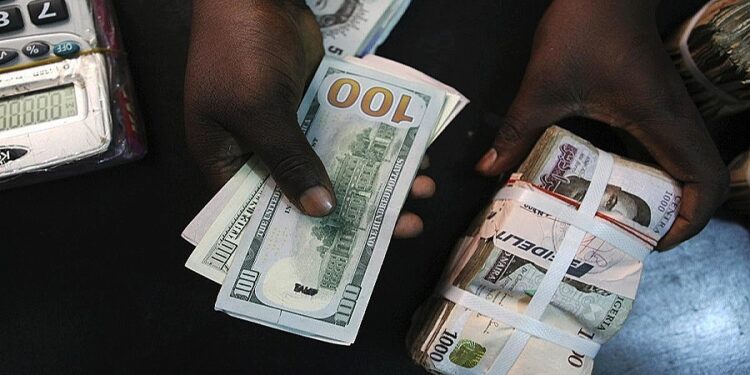By John Ikani
The Nigerian foreign exchange (FX) market is projected to experience further naira depreciation, despite an increase in the country’s external reserves.
According to the Central Bank of Nigeria (CBN), Nigeria’s external reserves climbed by 0.69 percent from $32.418 billion on May 9, 2024, to $32.642 billion on May 16, 2024.
The naira dropped by 2.07 percent over the week, closing at N1,497.33 per dollar on Friday, compared to N1,466.31 the previous week, in the Nigerian Autonomous Foreign Exchange Market (NAFEM).
“We anticipate extended pressure on the Naira as FX supply-demand mismatch persists,” analysts at Afrinvest Securities Limited said in a report.
In five trading days, the naira declined by 1.28 percent, with the dollar trading at N1,497.33 on Friday, up from N1,478.11 on Monday, according to FMDQ Securities Exchange Limited data.
On a daily basis, the local currency appreciated by 2.45 percent, rising from N1,533.99 per dollar on Thursday at NAFEM.
In the parallel market, commonly referred to as the black market, the naira weakened to an average of N1,521.66 per dollar last week.
The volume of dollars available from sellers and buyers fell by 63 percent week-on-week, totalling $991.90 million last week, down from $608.50 million the previous week.
Day-on-day, dollar supply plummeted by 69.39 percent to $83.50 million on Friday, compared to $272.86 million on Thursday.
The report noted a 1.4 percent weekly rise in the price of Brent crude, closing at $83.98 per barrel. This was attributed to lower-than-expected U.S. consumer inflation readings, raising hopes for increased demand during the upcoming travel-heavy summer season.
Analysts at Comercio Partners suggested that various factors would influence the naira’s direction. Potential adjustments to the CBN’s policy rates could attract foreign investors back to Nigeria’s fixed-income market, thus supporting the currency.
They also noted that sustained currency appreciation would depend on broader economic diversification and continuous reforms to mitigate FX market speculation and enhance regulatory frameworks.
“Detailed analysis of sector-specific impacts, such as the manufacturing and export sectors, will provide deeper insights into how currency fluctuations affect key industries. Monitoring trends in foreign investment, remittances, and FX reserves utilization will also be crucial in understanding Nigeria’s economic resilience and its ability to navigate global economic challenges,” the analysts said.



































